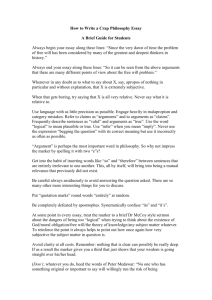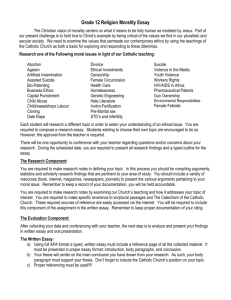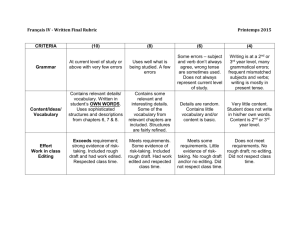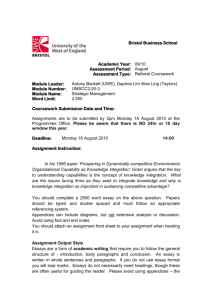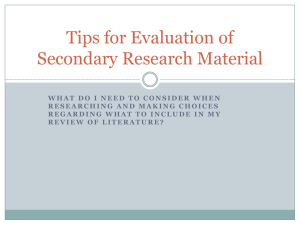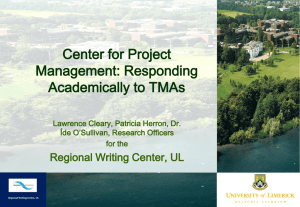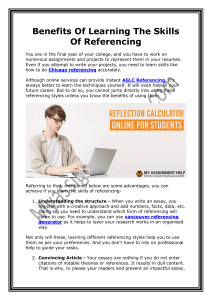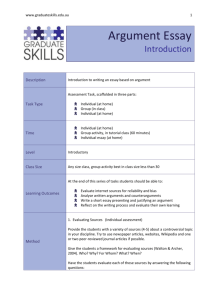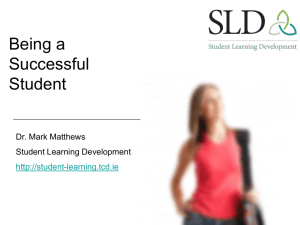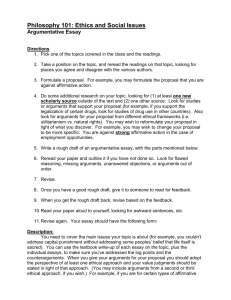Essay Writing - Student Learning Development
advertisement
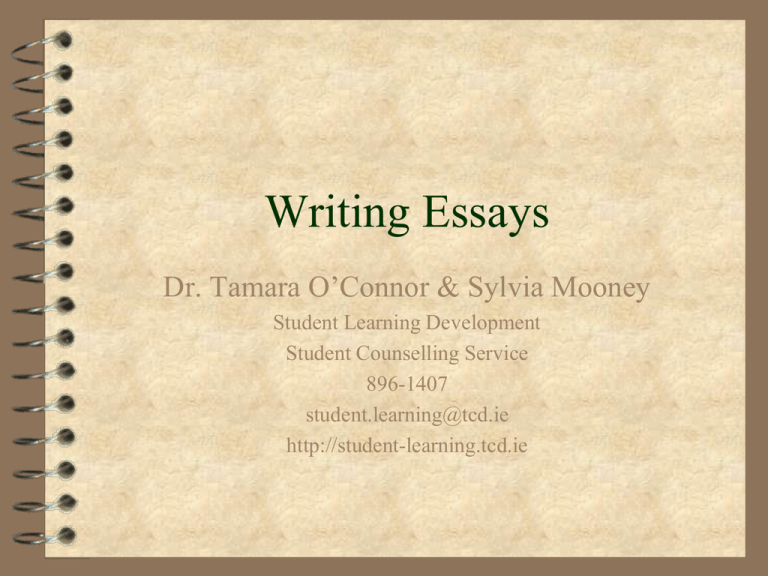
Writing Essays Dr. Tamara O’Connor & Sylvia Mooney Student Learning Development Student Counselling Service 896-1407 student.learning@tcd.ie http://student-learning.tcd.ie Session objectives Focus on writing process instead of product Look at the phases of writing Explore strategies for starting writing earlier Understand the importance of structure to an academic essay Review examples Learn about some useful writing resources Writing Stages/Phases Planning Thinking Researching Plan Think Writing Editing Write Planning the assignment Understand the question – Breakdown – Verbs Requirements – Length, Wording – Referencing Establish Time Frame Planning time frame List tasks – Preliminaries – Gathering Information – Organising Information – Rough outline – Draft 1 – Draft 2 – References – Proofreading Create deadlines – _____________ – _____________ – _____________ – _____________ – _____________ – _____________ – _____________ – _____________ – _____________ Thinking Brainstorm – Ideas – What know – Try mindmapping Preliminary reading Refine topic Continues throughout process Discuss the contribution of nursing models to the development of practice Key Words? – Discuss – Nursing model – Practice Key themes & arguments – Define model – Arguments – Advantages & Disadvantages of using models Structure Introduction – outline of essay Main section – Main point A • details, evidence – Main point B Conclusion – summary of main points – personal conclusions Researching Rough outline Gather information relevant to topic Keep good notes – organise content according to outline – choose what to include Keep references Digest and reflect on information Writing Start writing early – extend outline – one idea or section at a time – get something down! Write first, rough draft Revise & improve draft How many drafts? Develop your argument Use source material Compare and contrast Show awareness of complexities Show line of reasoning – link points – central guiding line Your conclusions - based on evidence References Why? Credit sources of information & ideas Reader can locate for further information if required Demonstrate breadth of reading & knowledge References When? Direct quotes Paraphrases Statistics/Studies Theories Interpretations Facts Plagiarism Using someone’s words or ideas and presenting them as your own (Marshall & Rowland, 1998) Inappropriate use of ideas from books, articles, internet, or other students’ work ??? References How? – Reference system e.g. Harvard – Record sources – Take careful notes – Reference list – In-text citing or referencing Sample marking criteria Focusing on a topic Presentation Structuring an essay Referencing Content Evidence of language Formulating skills Use of learning resources arguments Editing Proof read – out loud – time out – peer Write up references Final draft – presentation Submit! Final deadline Checklist Feedback
